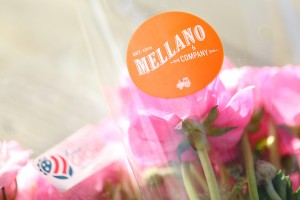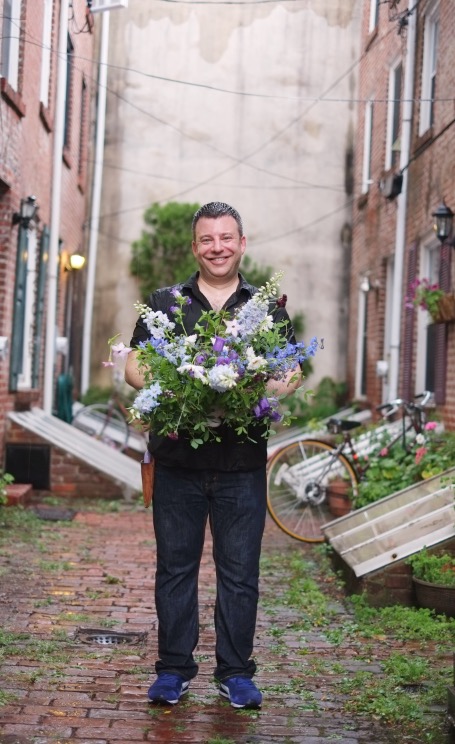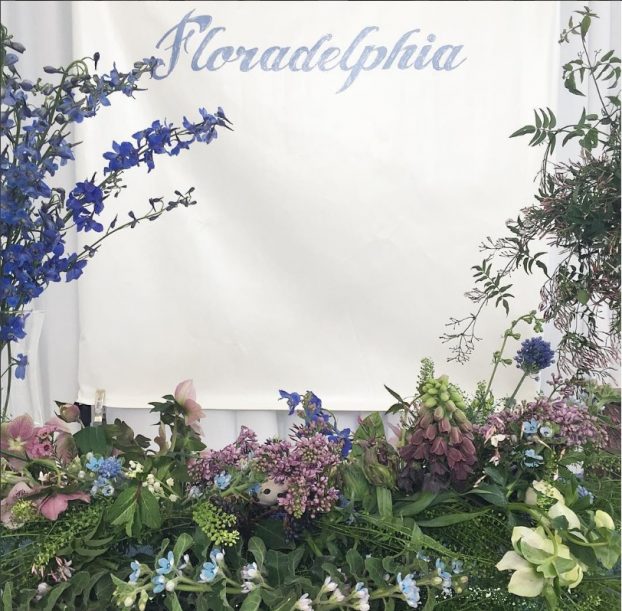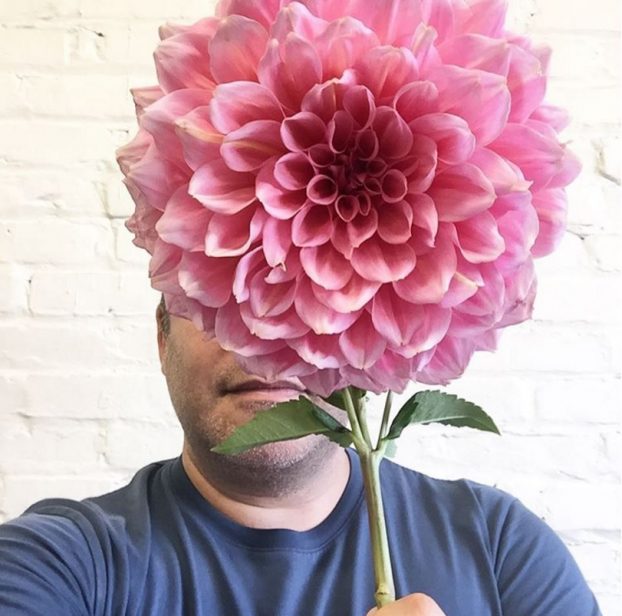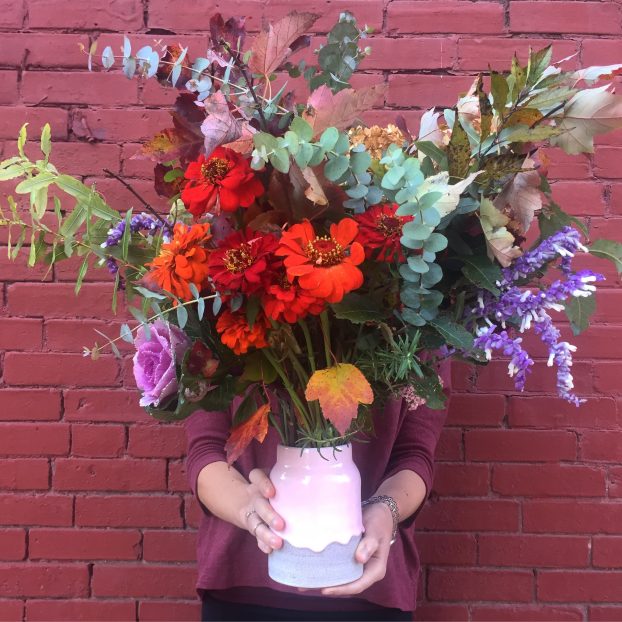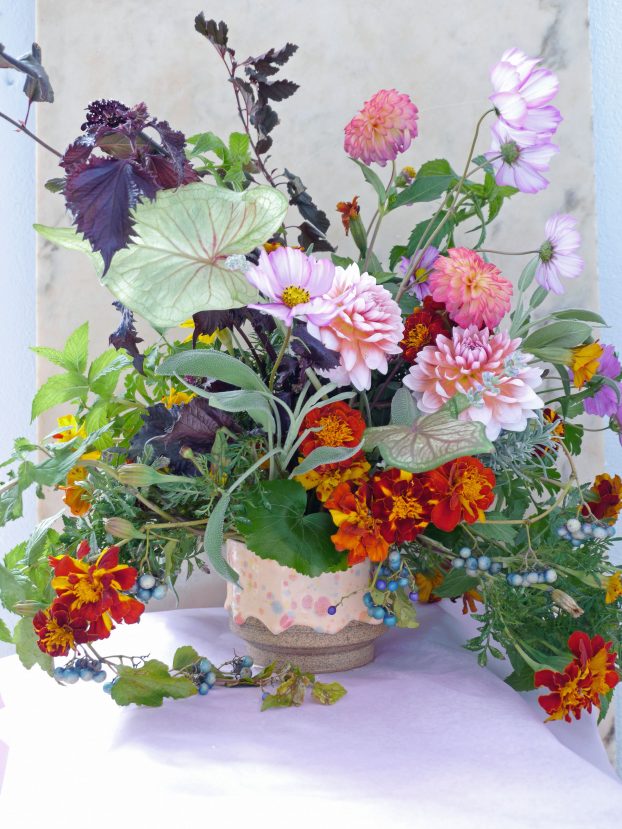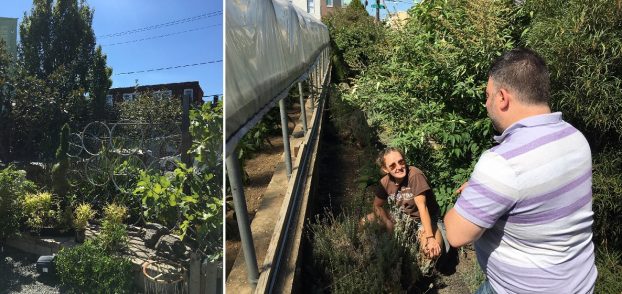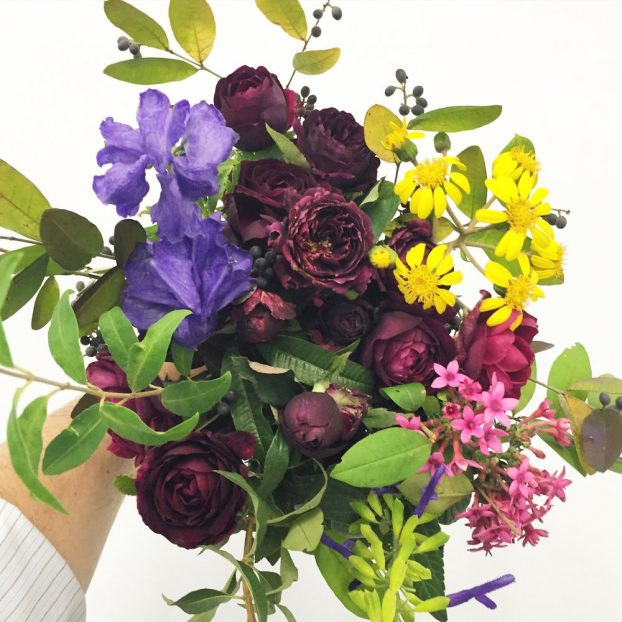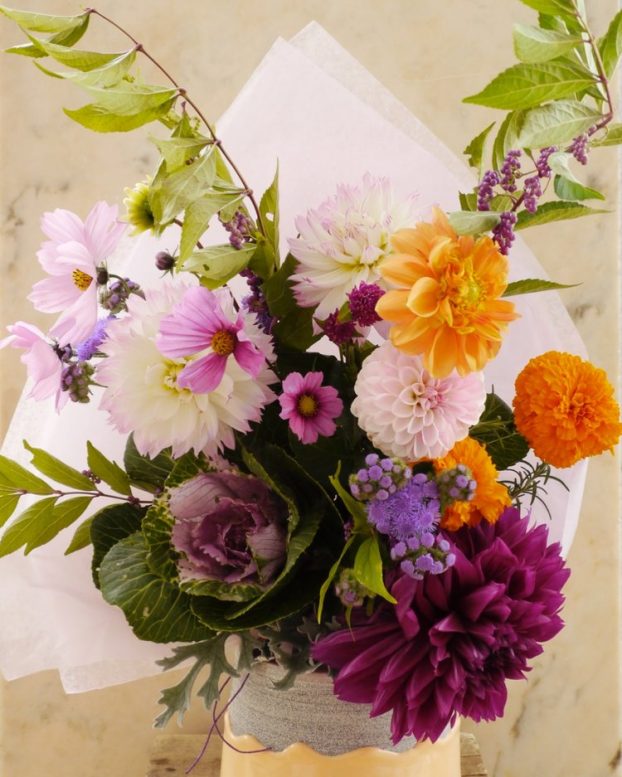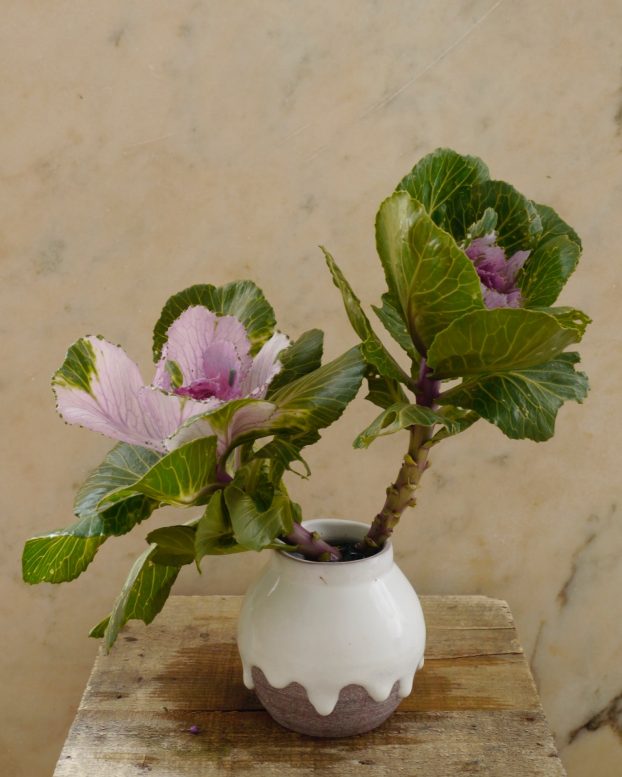Podcast: Play in new window | Download
Subscribe: Apple Podcasts | Podcast Index | RSS | More
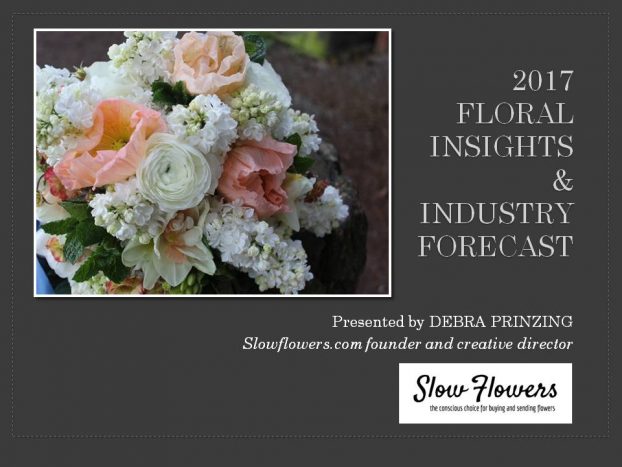
Happy New Year and Welcome to the third annual Slow Flowers’ Floral Insights and Industry Forecast.
Unlike most TREND reports, this compilation tracks changing shifts, emerging ideas and new concepts that are taking hold in the American floral world. Think of it as your Next, New and Now Report. These topics are gleaned from my conversations and interviews that took place with many of you during 2016– Slow Flowers members, including farmers, florists and creatives. I know some of you have already experienced these emerging developments and your influence has inspired this list.
If you would like a copy of this report, please click here: 2017-floral-insights [PDF download]
I look forward to your reaction, thoughts, and input on the Slow Flowers’ Floral Insights and Industry Forecast, including the ideas and themes I may have overlooked! I invite you to share yours in the comment section below.
Let’s get started:
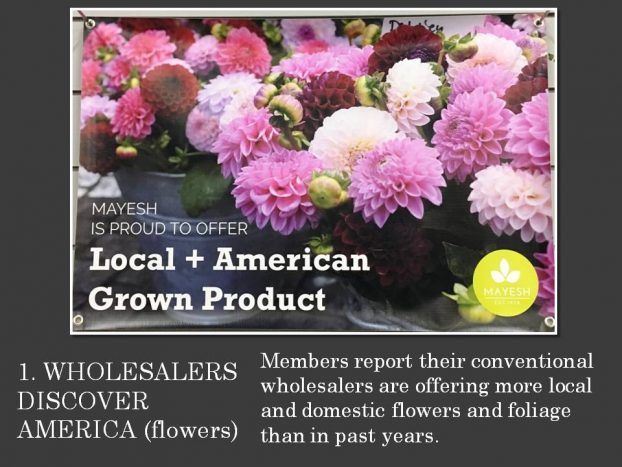
#1 WHOLESALERS ARE DISCOVERING AMERICA. In the midst of global floriculture, with trade in cut flowers estimated at more than $100 billion per year, $13 billion of which takes place in the U.S., we’ve been seduced by the notion that the world is our oyster (or flower field).
In many markets around the country, the wholesale florist is the only commercial cut flowers and foliage source for floral designers, flower shops and studios to purchase product.Yet after branding themselves as the only way to access a world of floral options, some wholesale florists are returning to their roots, at least in part. They are proactively sourcing from American flower farms large and small to stock their coolers and shelves. And beyond this step, many are also using signage and labeling to inform buyers of the origin of that product.
I believe the explosion of farmer-florists and the growth of small-scale floral agriculture in markets across North America has occurred in part because of frustration with the lack of or limited local sourcing by conventional wholesalers. Let me say that again: Farmer-Florists and small-scale floral agriculture have stepped into the gaping void created when wholesalers turned their backs on local flower farmers. And now they’re waking up to the missed opportunity.
The success of the Seattle Wholesale Growers Market, well-documented by me and on this podcast over the past several years, as well as the continued growth of the farmer-owned Oregon Flower Growers Association market in Portland underscore that demand for local flowers is already in place.
Now we are witnessing a shift among some conventional wholesalers to align their brand with American Grown and Locally-grown flowers. Mayesh Wholesale Florist is the most active in this arena, with active support for Slowflowers.com, American Flowers Week, Lisa Waud’s Flower House Detroit, and other sponsorships.
When Mayesh opened its renovated Portland, Oregon, branch in early November, the company asked me to make a design presentation. The team there was very supportive of my request for all locally-grown product — hat’s off to Mayesh and I certainly expect that their success at the cash register will motivate other conventional wholesale florists to get onboard.
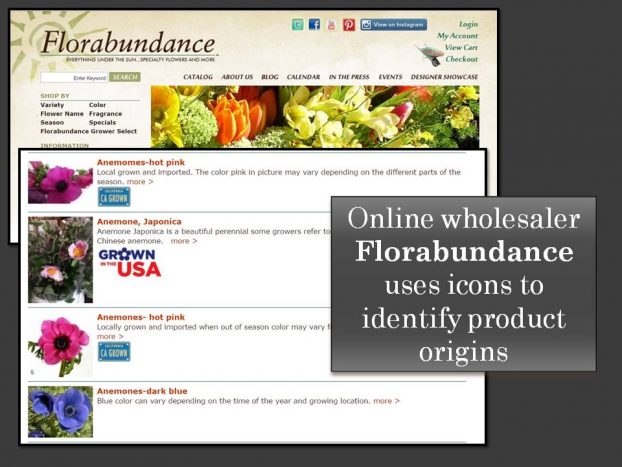
I’ve previously singled out Santa Barbara-based Florabundance, led by Joost Bongaerts, for making the effort to label all California-grown floral and foliage offerings on his online wholesale site. It is an effective tool — one I hope others will emulate. It is certainly a step that demonstrates excellent customer service and an awareness that Florabundance shoppers want to know the origin of the flowers they purchase.
This past fall, I surveyed Slowflowers.com members for their take on a number of topics and trends. When I asked, “If you shop with Conventional Florists, are you finding more American grown and locally-grown product than in the past?” 70 percent of respondents said yes.
Here are a few of the specific comments to elaborate:
- I request American grown from my Rep, and I think there are more boutique, seasonal items that are coming from smaller farmers
- I have been asking my conventional wholesalers to bring in more American grown product and I think it is helping. The “American Grown” branding really helps us to know that is happening.
- It’s definitely taking place and some people at the conventional wholesalers are proud to share that their products are American grown.
This last comment reflects that the industry still has far to go. One member noted:
- It’s a toss up. They say they want to add more but I’m not sure if they are working really hard at. And they don’t do a very good job at advertising what is local and what is not. My Rep knows that I want American grown but still have to ask every time
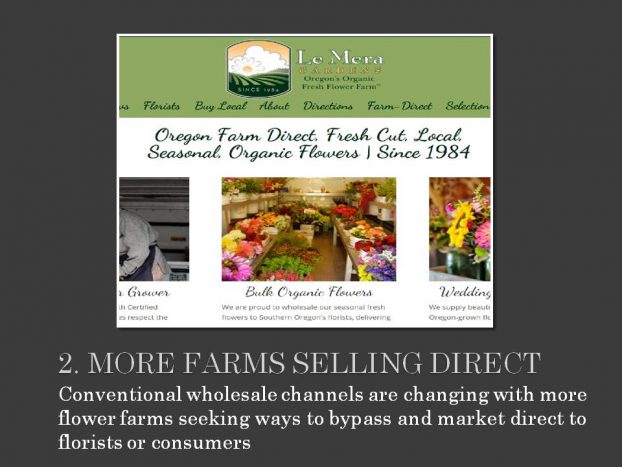
#2 MORE FARMS SELLING DIRECT. This insight is closely connected with item number one.
In general, the conventional wholesale model is changing, as traditional channels of floral distribution are disrupted. I predict that more flower farms will seek and establish new ways to bypass the conventional wholesale pipeline and market direct to florists and consumers. This is a hot topic and certainly one that’s hard to find anyone willing to go on record to discuss.
Our Slow Flowers survey revealed numerous sales channels among flower farmers. Granted, the majority of Slow Flowers farm-members are small-scale producers, but I believe they are the ones modeling how diversification and direct-to-florist commerce can succeed. When asked about their distribution channels, our respondents cited the following top three outlets:
- Seventy percent are growing flowers for their own weddings and event clients;
- This is followed closely by farms selling direct to other florists and wedding designers, at around 67 percent
- With 53 percent of flower farms reporting they sell to local flower shops
After this top tier, the percentages drop down to one third of respondents who sell flowers via farmers’ markets and CSA subscribers (basically consumer-direct) and about one-quarter who sell to local wholesalers and grocery/supermarket buyers.There is another farm-direct model, and here’s where I think the disruption is most revealing. A number of large farms are experimenting with direct-to-florist and direct-to-consumer models.
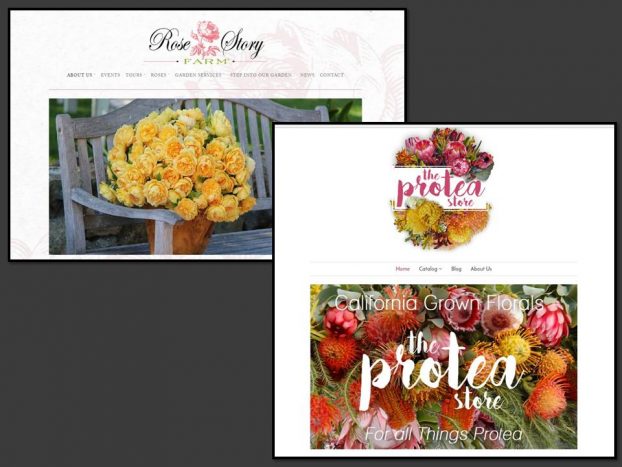
There is another farm-direct model and here’s where I think the disruption is most revealing. A number of large farms are experimenting with direct-to-florist and direct-to-consumer models. A few successful single-crop models have been in place, such as Danielle Hahn’s Rose Story Farm, which in the past few years has shifted almost completely away from selling through wholesalers to florist-direct fulfillment, and many of the Alaska peony growers who sell direct to florists and consumers.
Now, diversified, large-scale growers are beginning to spin off consumer-focused web shops, such as Sun Valley’s Stargazer Barn or Resendiz Brothers’ Protea Store. In the scheme of things, these new ventures are moving only a small fraction of their parent farms’ floral inventory.
But I predict that as large farms bend to demand for farm-direct sourcing of flowers (by consumers and florists alike), the path from field to bouquet will speed up and perhaps take fewer detours through brokers and wholesalers. That means fresher, more seasonal and better value for all floral customers.
READ MORE…









